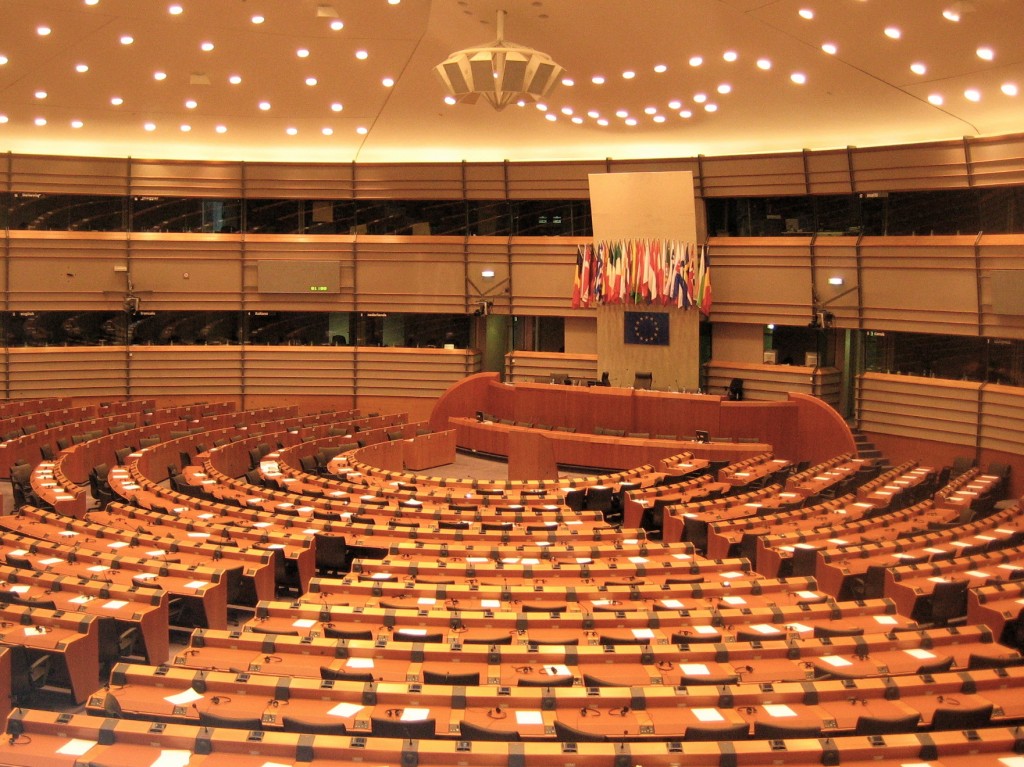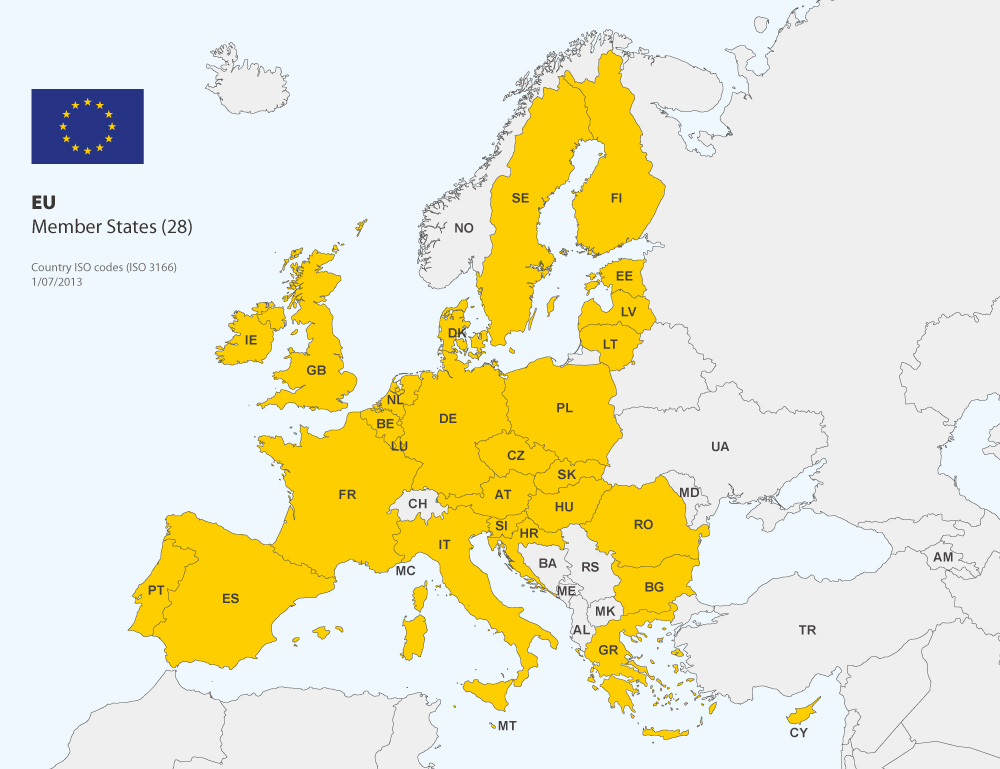On the last full weekend of May, European voters in 28 member-states with a population of over 500 million will determine all 751 members of the European Parliament.![]()
The political context of the 2014 parliamentary elections
Since the last elections in June 2009, the European Union has been through a lot of ups and downs, though mostly just downs. After the 2008-09 financial crisis, the eurozone went through its own financial crisis, as bond yields spiked in troubled Mediterranean countries like Greece, Spain, Italy and Portugal with outsized public debt, sclerotic government sectors and economies operating near zero-growth. Eastern European countries, facing sharp downturns themselves, and a corresponding drop in revenues, implemented tough budget cuts and tax increases to mollify bond markets. Ireland, which nationalized its banking sector, faced similar austerity measures. European Central Bank president Mario Draghi’s promise in the summer of 2012 to do ‘whatever it takes’ to maintain the eurozone marked the turning point, ending over two years of speculation that Greece and other countries might have to exit the eurozone. Many countries, however, are still mired in high unemployment and sluggish growth prospects.
One new member-state joined the European Union, Croatia, in July 2013, bringing the total number to 28, though Iceland, Serbia and Montenegro all became official candidates for future EU membership:
Politically speaking, since the 2009 elections, only two of the leaders in the six largest EU countries are still in power (Polish prime minister Donald Tusk, a centrist, and German chancellor Angela Merkel, a Christian democrat) reflecting a climate that’s been tough on incumbent governments. Spain and the United Kingdom took turns to the political right, and France and Italy took turns to the political left, but none of those governments seems especially popular today — and each of them will face a tough battle in the voting later this month.
Of course, that’s only if voters even bother to turn out. Since the European Parliament’s first elections in 1979, turnout has declined in each subsequent election — to just 43.23% in the latest 2009 elections:
 At the European level, the Treaty of Lisbon, a successor to the ill-fated attempt to legislate a European constitution in the mid-2000s, took effect in December 2009, scrambling the relationships among the seven institutions.
At the European level, the Treaty of Lisbon, a successor to the ill-fated attempt to legislate a European constitution in the mid-2000s, took effect in December 2009, scrambling the relationships among the seven institutions.
The elections, which will unfold over four days between May 22 and May 25, are actually about much, much more than just electing the legislators of the European Union’s parliamentary body, which comprises just one of three lawmaking bodies within the European Union. Continue reading In Depth: European Parliament

